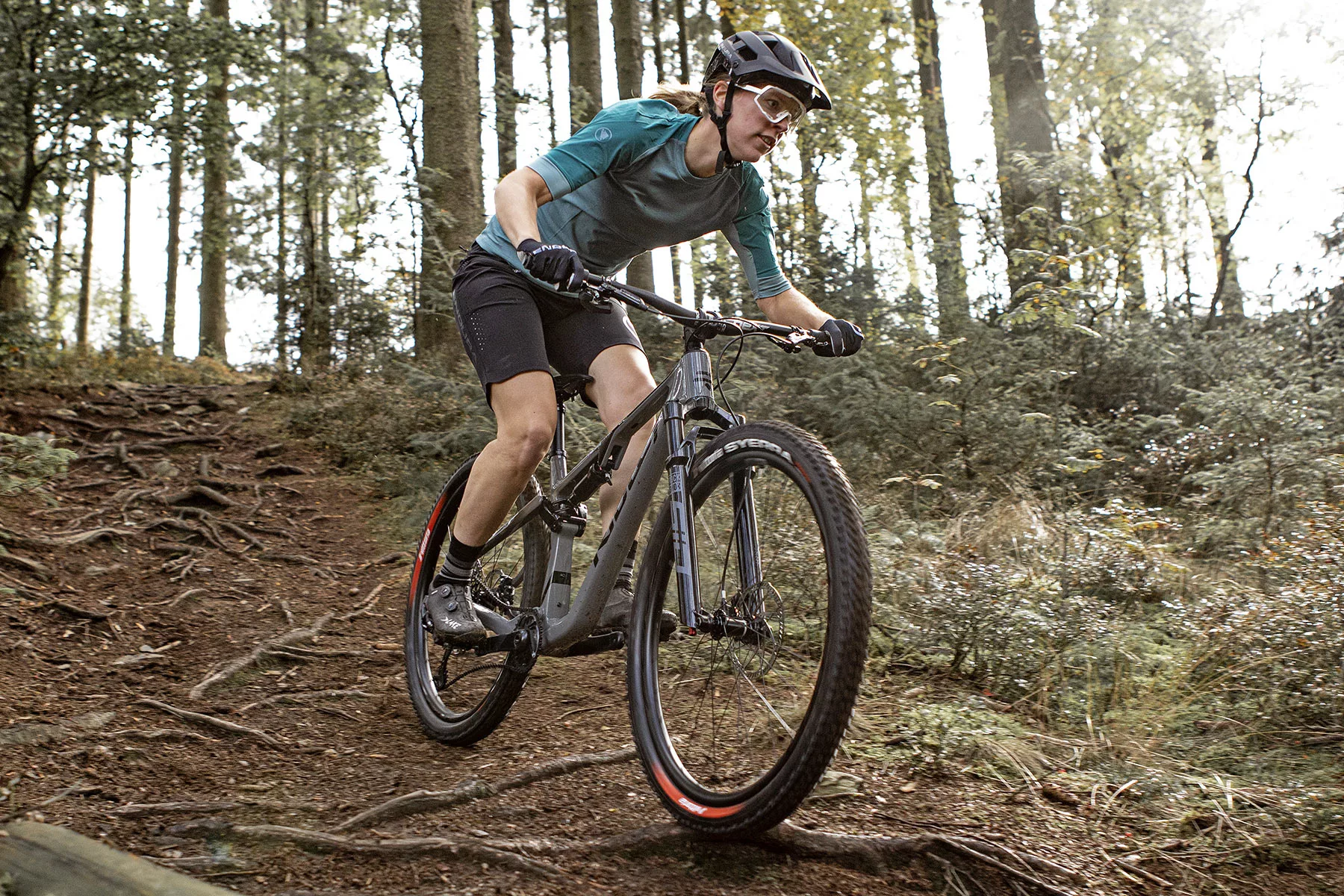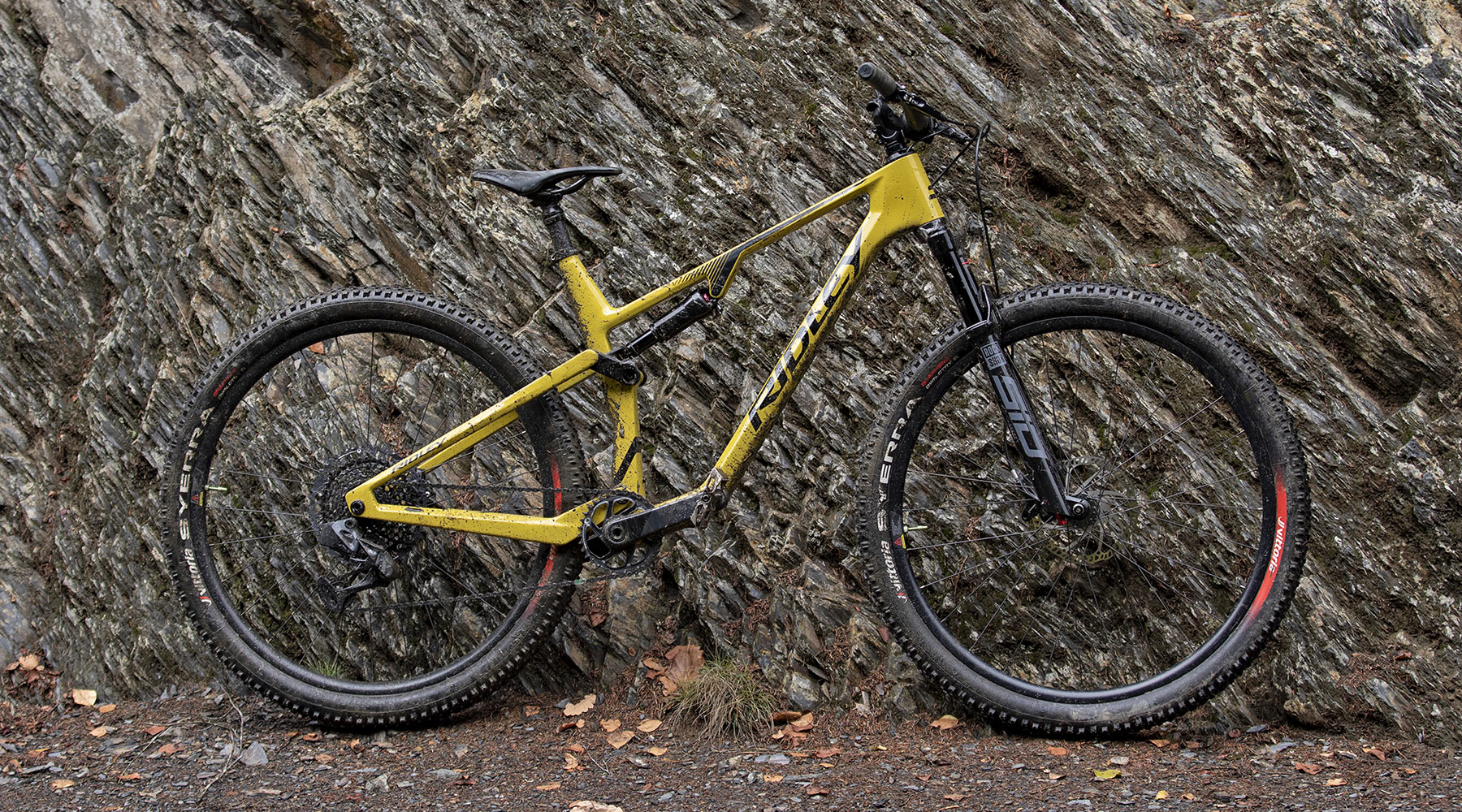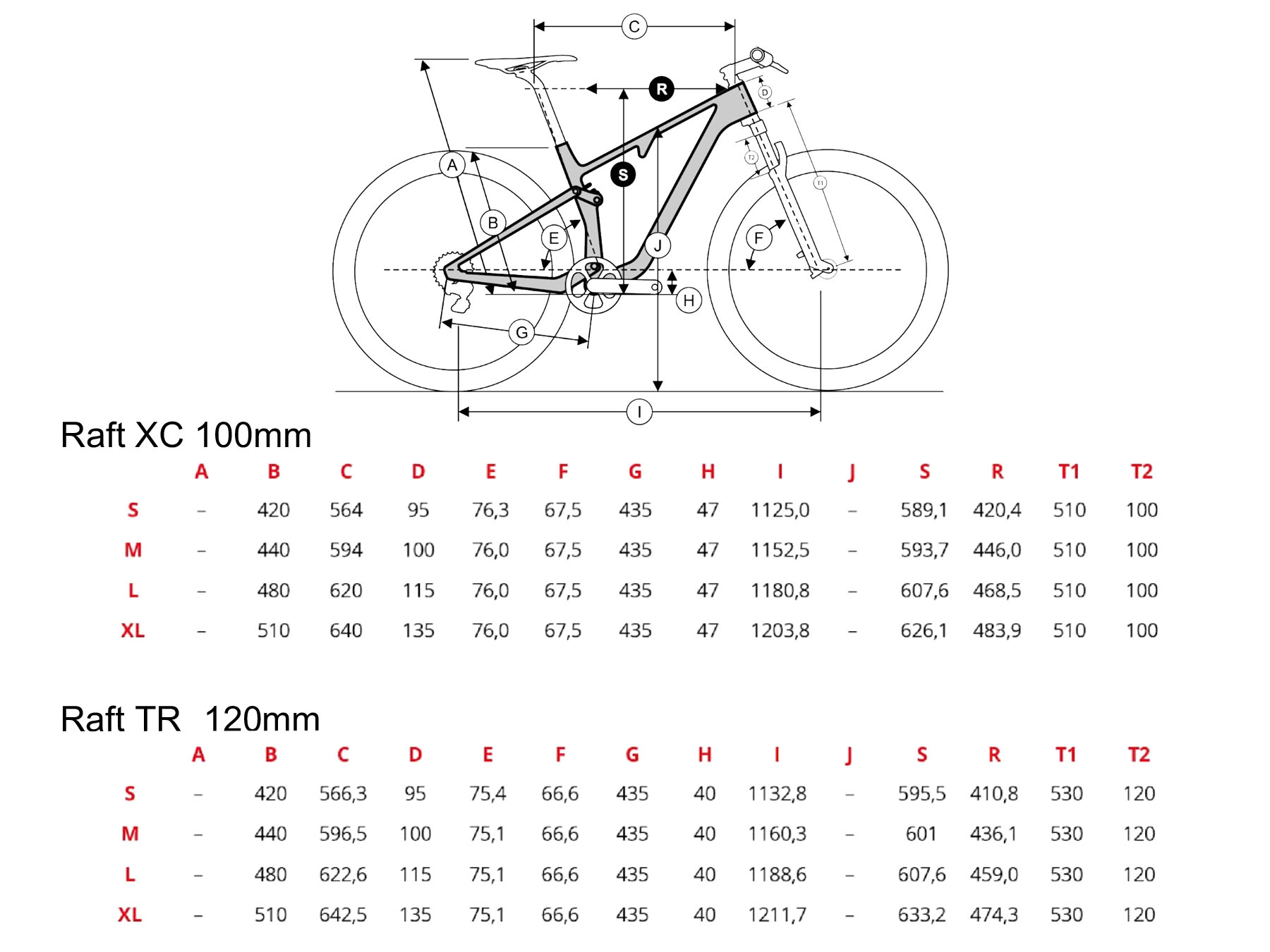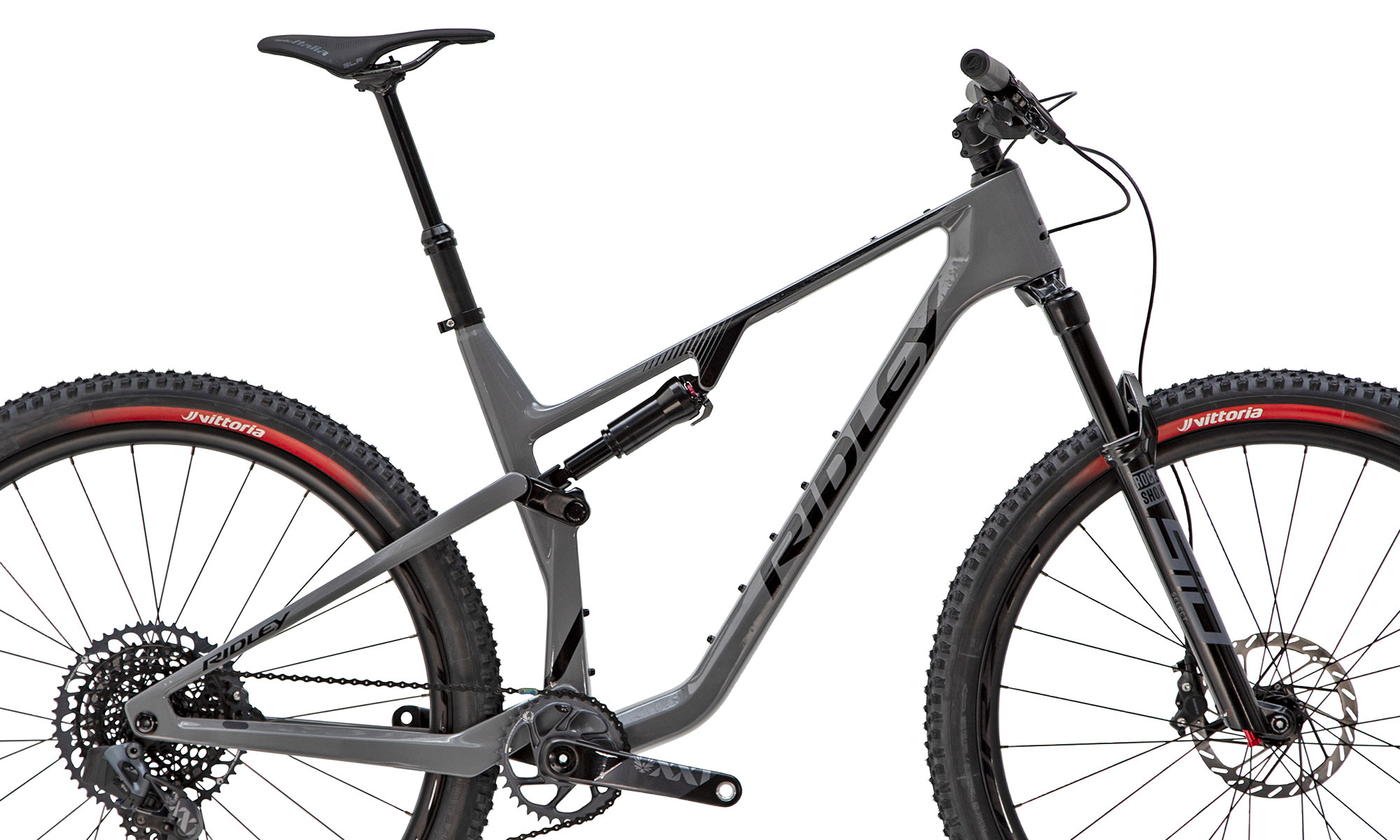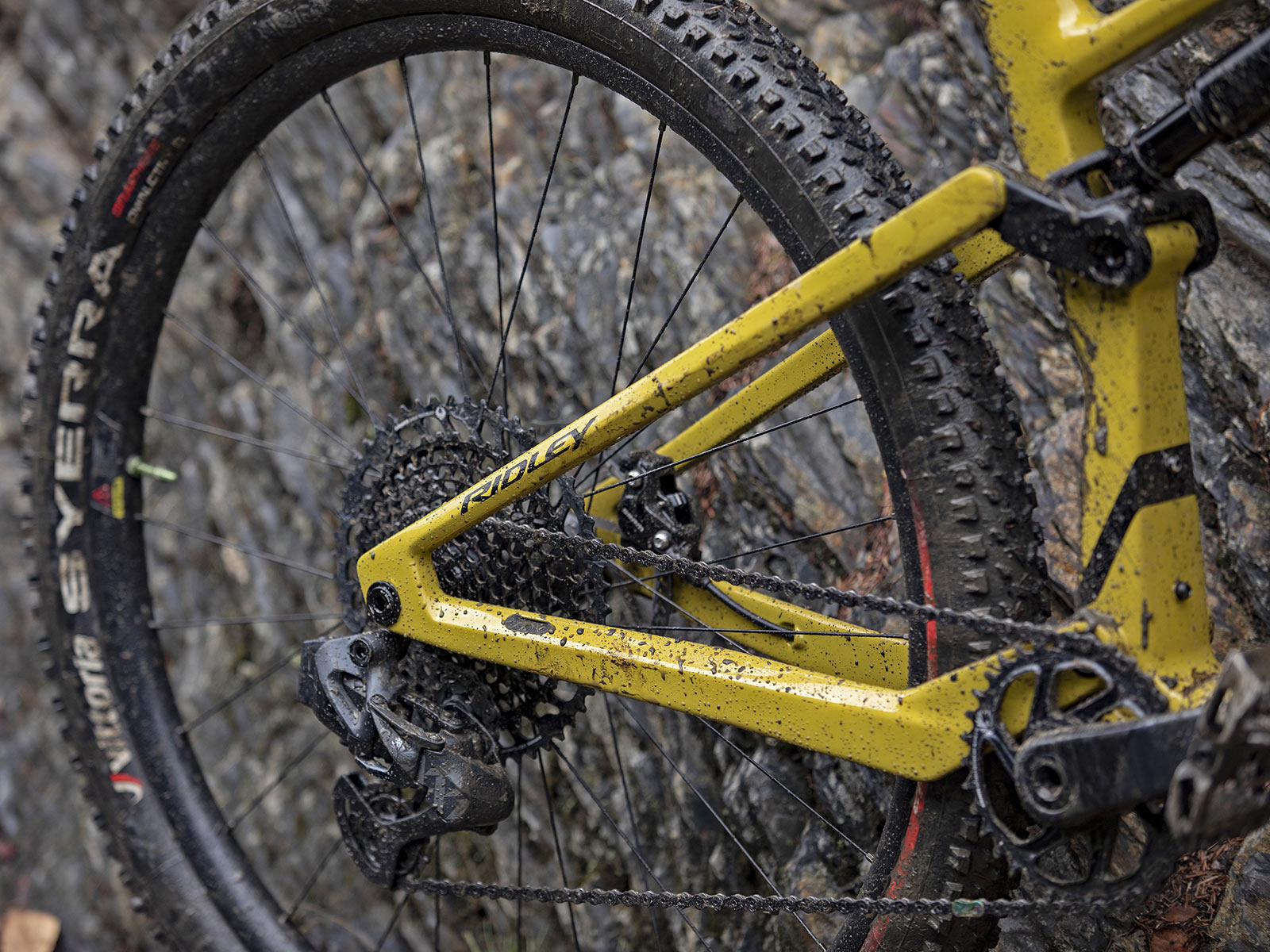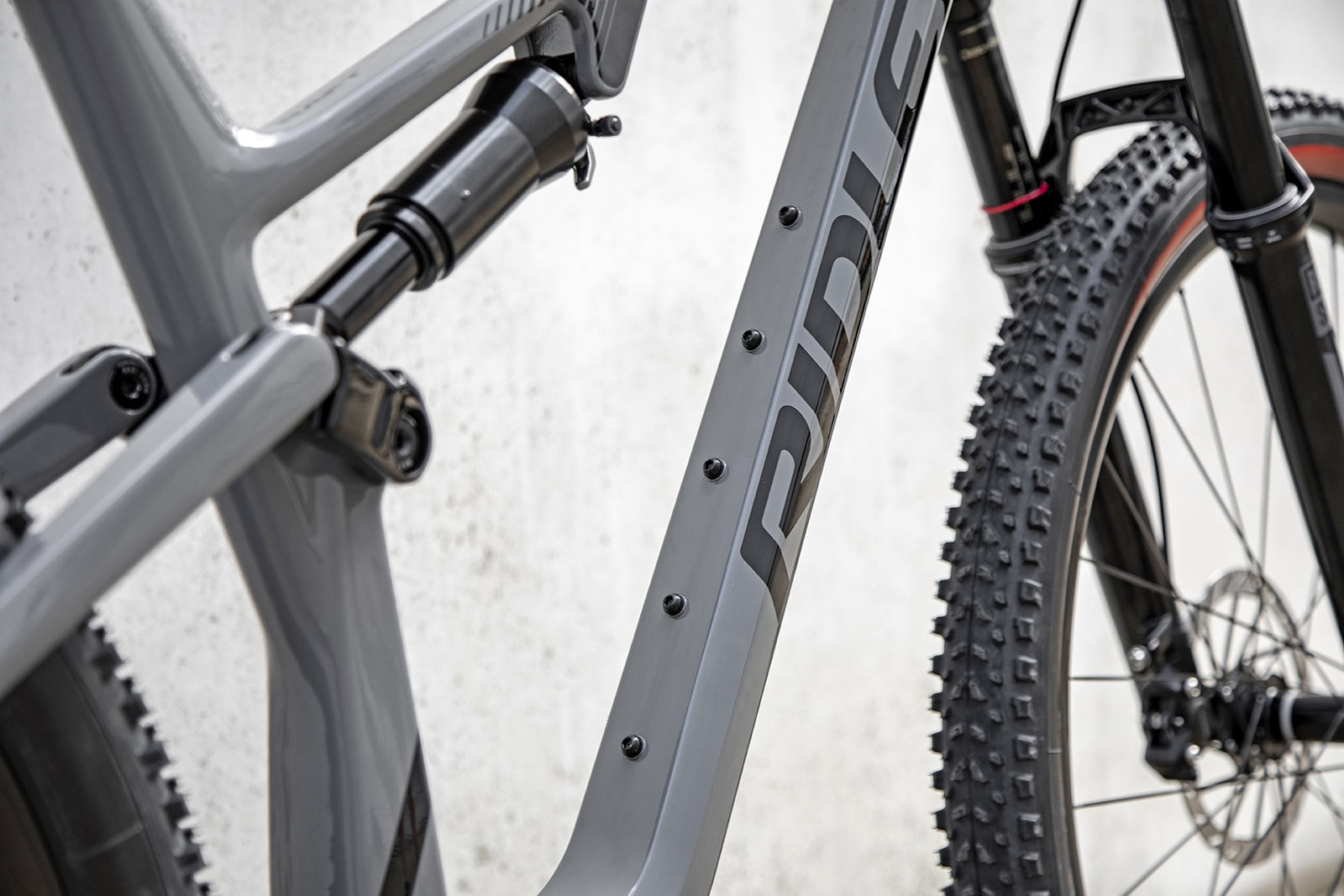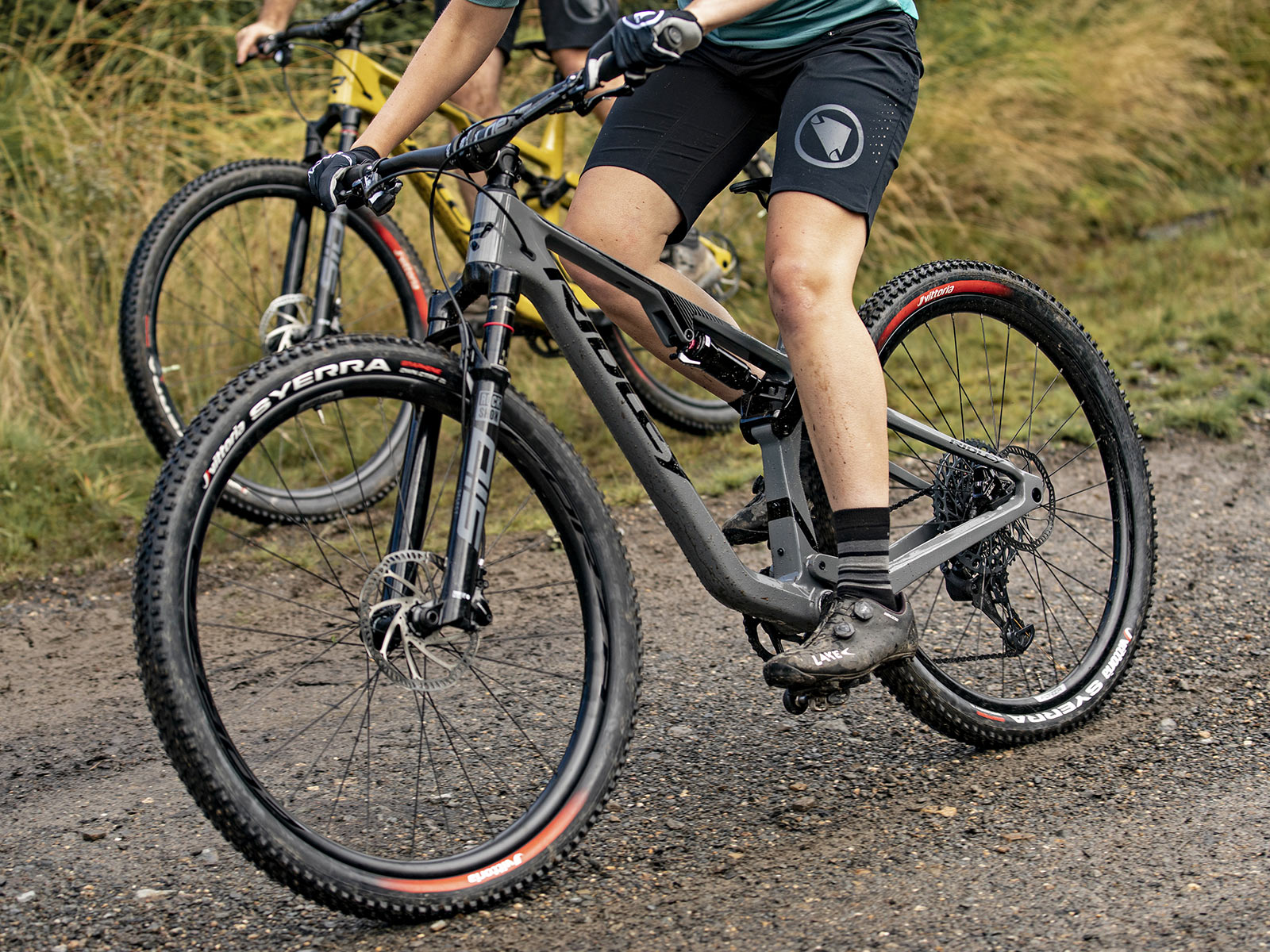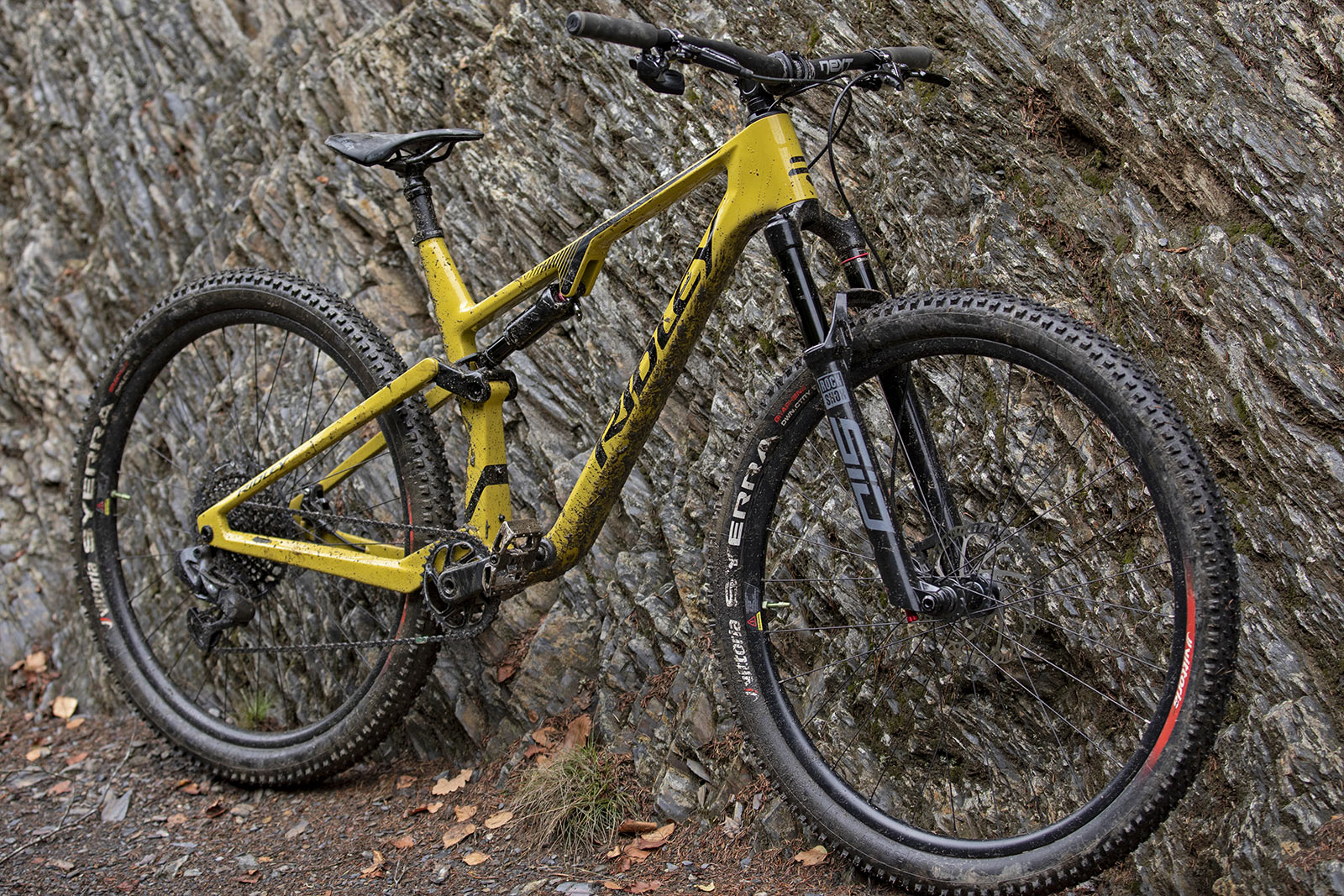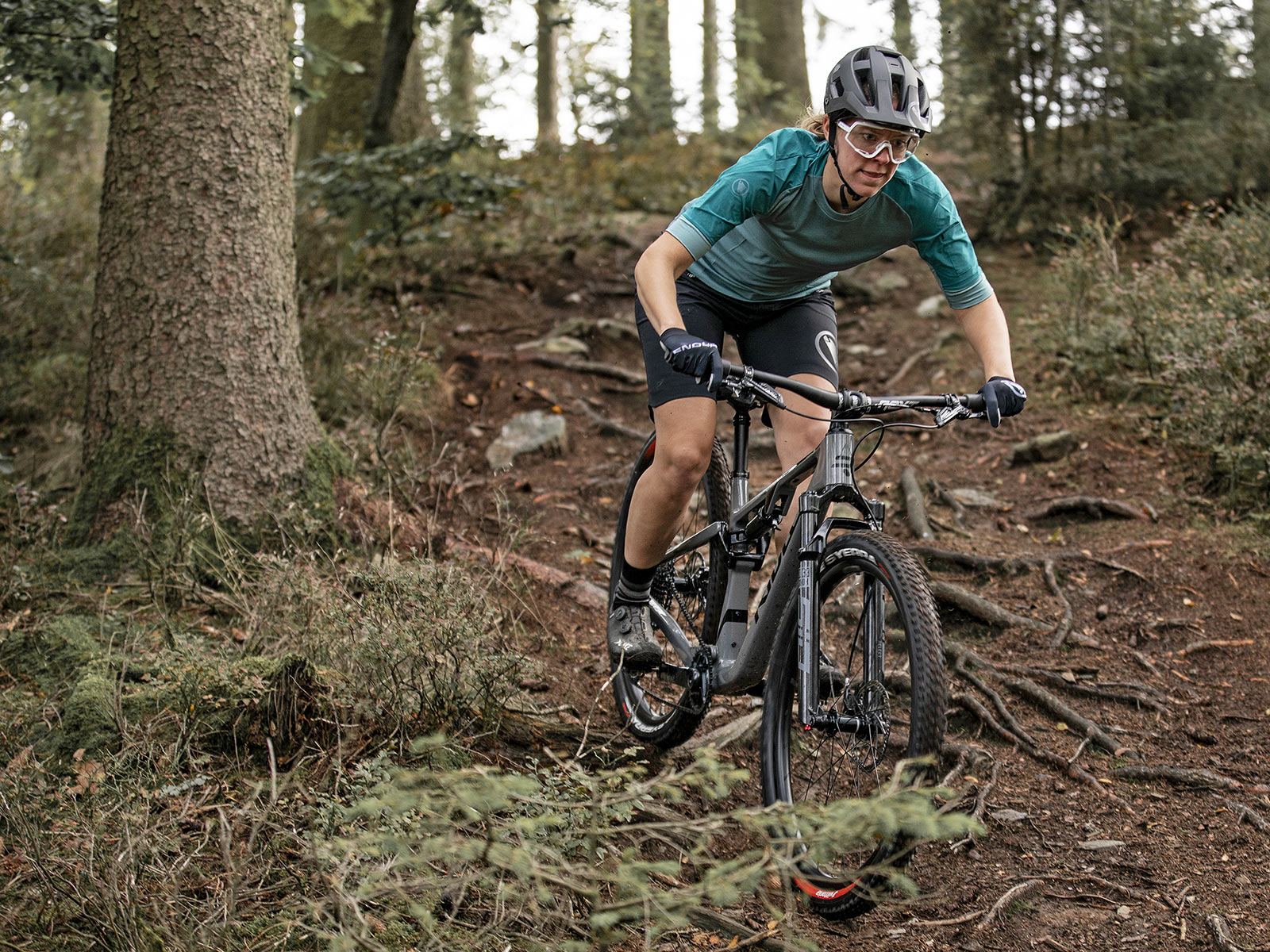Ridley hits the trail hard today with a couple of all-new carbon mountain bikes, but the Raft full-suspension bike is good for two bikes in itself, with separate XC & Trail builds. Sharing the same simple & lightweight single-pivot carbon MTB frame platform, the Raft XC gets 100mm of race-ready travel while the Raft Trail drops into more technical terrain with 120mm of travel front & rear…
Ridley Raft versatile carbon mountain bike
It’s been several years since we’ve last seen a new full-suspension mountain bike design from Ridley. In that time, elite XC racing has become much more technical, so it seems fitting that Ridley’s new full-suspension XC bike is both more capable and more of an all-rounder.
Ridley essentially breaks it down to the fact that almost every new mountain bike these days is more capable than even a few years ago thanks to the evolution of long, low & slack geometry. XC bikes can push harder through technical terrain, and trail bikes can be built lighter and more snappy. Even their new ultralight Probe RS hardtail can be a trail bike now, too…
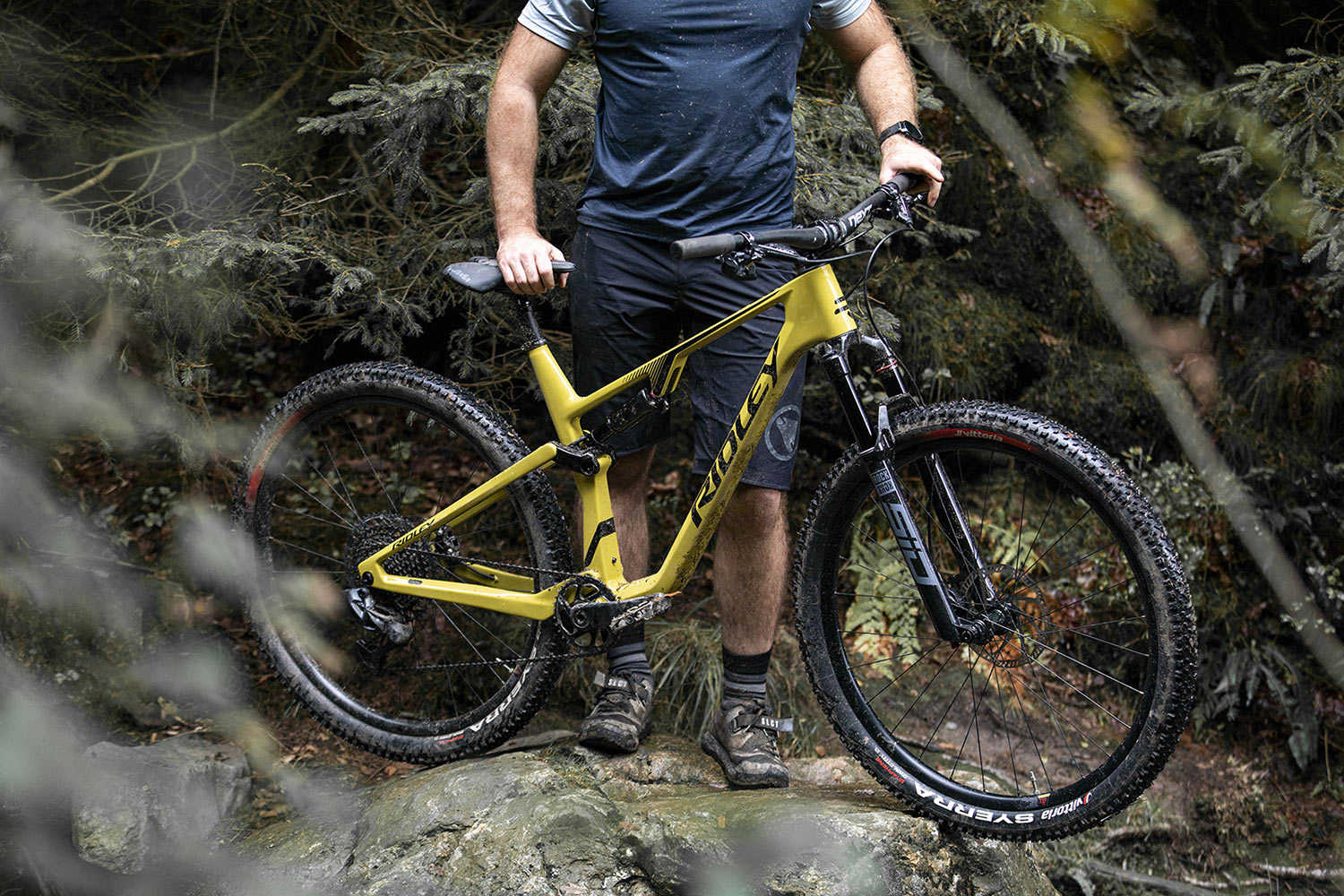
So, that’s where the new Raft sits – at the intersection of cross-country and trail…
100mm XC or 120mm Trail travel & versatile geometry
Pick the 100/100mm Raft XC build if you want the lightest weight and most responsive handling, to float up the climbs. Or go for the singletrack-slaying 120/120mm Raft TR spec with a longer stroke shock and longer travel fork to bleed over into the lightweight Trail bike category.
Geometry in either case is similarly capable in steep & technical terrain – with a 67.5° headtube for the XC mode or 66.5° in TR mode to go downhill, and steep 76/75.1° seat angles to get back to the top of the mountain. Combine that with short 435mm chainstays thanks to the simplified flex-stay single-pivot with a linkage-driven shock, and handling remains quick no matter the travel.
Raft Tech Details
The two different moods of the bike are as simple as sticking with the Raft XC’s 40mm stroke RockShox SIDluxe rear shock for 100mm or swapping in the 45mm stroke Deluxe damper for 120mm of travel. Both get the same eye-to-eye length, so matching the fork track from the 100mm SID SL to the 120mm SID is what tweaks the geometry.
While the new Probe RS is the weight weenies mountain bike, Ridley made sure to keep the carbon Raft light, too.
Ditching the dropout pivots of the Sablo helped get the carbon frame weight down to a claimed 1750g (unpainted M, without shock), but even a complete Raft TR XX build with the longer travel is still said to weigh just 11.5kg for a large bike (25.35lb).
Like the hardtail, the Raft gets a 31.6mm seatpost, stealth dropper routing (here internally through the 1.5″ upper headset cap), a flat mount rear disc brake, Boost spacing, UDH, a PressFit BB92 bottom bracket, and 29″ x 2.4″ tire clearance. Curiously, rear brake routing is still through a modular cable port in the left side of the downtube.
It also gets a ton of bikepacking-ready mounts so you could adapt a marathon XC build to take on the toughest backcountry adventure races. The carbon full-suspension bike gets toptube bag mounts, a seattube cage mount, and 5 mounting bolts on the downtube (just 3 on size S), so you could mount an Anything Cage and some other tool/accessory mount, as well.
Ridley Raft – Pricing, options & availability
Available in four sizes (S-XL), you will be able to custom configure the Raft in either XC or TR builds online starting in January.
Complete Ridley Raft XC cross-country bike builds start at 4200€, while Raft TR trail bike builds are a bit more starting at 5000€, both with mechanical SRAM Eagle build kits and Ridley’s house brand Forza wheels & cockpit.
The first Rafts are expected to show up in Ridley dealer bike shops in Spring 2023.
